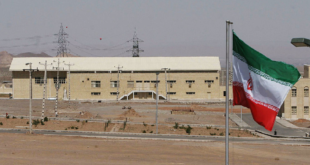24-09-2022
LONDON: The British government has unveiled a new mini-budget in the parliament, intending to cut household taxes and energy bills while driving economic growth.
In what represents the most significant tax cut budget since 1972, the new finance minister Kwasi Kwarteng’s sweeping new budget will see cuts to national insurance, stamp duty and the top tax rate.
 During his speech in the House of Commons on Friday, Kwarteng said: “People will have seen the horrors of (Russia’s President Vladimir) Putin’s illegal invasion of Ukraine. They will have heard reports that their already-expensive energy bills could reach as high as 6,500 pounds ($7,254) next year.
During his speech in the House of Commons on Friday, Kwarteng said: “People will have seen the horrors of (Russia’s President Vladimir) Putin’s illegal invasion of Ukraine. They will have heard reports that their already-expensive energy bills could reach as high as 6,500 pounds ($7,254) next year.
“Mr Speaker, we were never going to let this happen. The prime minister has acted with great speed to announce one of the most significant interventions the British state has ever made,” he said, referring to the United Kingdom’s new PM, Liz Truss.
Kwarteng said the budget would address three key things: the energy price guarantee, equal support for businesses, and an energy markets financing scheme.
A national insurance rise announced earlier this year under the former finance minister, Rishi Sunak, will be cancelled, saving households 330 pounds ($368) a year.
The threshold for zero stamp duty on house purchases will be doubled to 250,000 pounds, and increased to 425,000 pounds from the previous 300,000 pounds for first-time buyers.
 At the same time, a plan was brought forward to cut the lowest income tax rate from 20 to 19 percent and reduce the highest rate from 45 to 40 percent.
At the same time, a plan was brought forward to cut the lowest income tax rate from 20 to 19 percent and reduce the highest rate from 45 to 40 percent.
“High tax rates damage Britain’s competitiveness,” Kwarteng said. “They reduce the incentive to work, invest and start a business. And the higher the tax, the more ways people seek to avoid them, or work elsewhere or simply work less … rather than putting their time and money to more creative and productive ends” but in what was seen as a controversial move while the country faces a cost-of-living crisis, Kwarteng announced he will scrap the European Union-inherited cap on bankers’ bonuses following Brexit to boost the financial services sector.
A new era of growth
“Growth is not as high as it needs to be … We need a new approach for a new era, focused on growth. Our aim, over the medium term, is to reach a trend rate of growth of 2.5 percent,” the finance minister said.
However, Rachel Reeves, Labour’s finance policy chief, said Kwarteng had prioritised big business and “bankers’ bonuses” over working people by relying on a discredited theory of “trickle-down economics”.
 “The prime minister and chancellor (finance minister) are like two desperate gamblers in a casino chasing a losing run,” she told parliament.
“The prime minister and chancellor (finance minister) are like two desperate gamblers in a casino chasing a losing run,” she told parliament.
Since the announcement of the new mini-budget, the British pound dropped to a 37-year low as the sweeping unfunded tax cuts shook the market.
Many have flagged that the new budget disproportionately benefits the wealthy.
Jo Maugham, director of the Good Law Project, tweeted that the budget “means that those earning a million a year will have £54,400 ($60,700) extra in their pockets after tax and NICs (national insurance contributions)”.
“For those earning £25,000 ($27,900), the equivalent figure is about £280 ($312). Hard to imagine a worse response to a cost of living crisis.”
The government’s tax cuts are expected to cost 45 billion pounds ($50bn) by 2026/27. (Int’l Monitoring Desk)
 Pressmediaofindia
Pressmediaofindia




